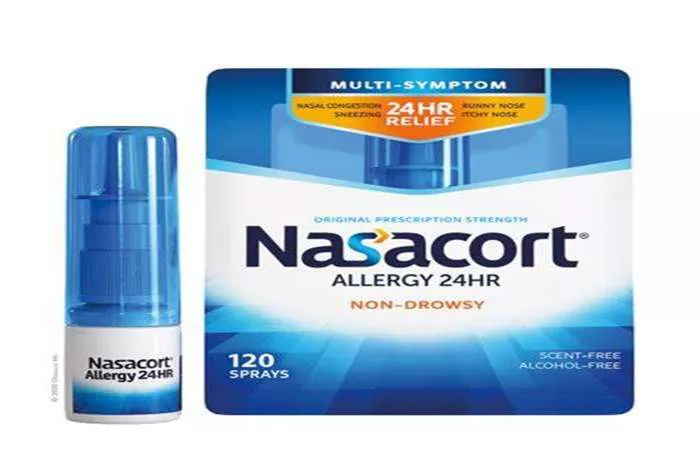Allergies affect millions worldwide, occurring when the immune system overreacts to harmless substances like pollen, dust, or certain foods. Symptoms range from mild (sneezing, itching) to severe (difficulty breathing, anaphylaxis). For severe allergies, finding the strongest and most effective medicine is crucial. This article explores the strongest allergy medications, how they work, and key considerations.
Understanding Allergies
Allergies happen when the immune system mistakes harmless substances (allergens) for threats, releasing chemicals like histamine that cause symptoms. Common allergens include pollen, dust mites, pet dander, mold, certain foods, insect stings, and medications. Symptoms vary but often include sneezing, runny nose, itchy eyes, skin rashes, swelling, and breathing difficulties.
Types of Allergy Medications
- Antihistamines: Block histamine to relieve sneezing, itching, and runny nose.
- Decongestants: Reduce nasal congestion by shrinking blood vessels.
- Corticosteroids: Reduce inflammation and suppress immune responses.
- Leukotriene Inhibitors: Block inflammation-causing leukotrienes.
- Mast Cell Stabilizers: Prevent histamine release from mast cells.
- Immunotherapy: Builds tolerance to allergens over time (allergy shots or sublingual tablets).
The 3 Strongest Allergy Medications
The strongest allergy medications depend on the severity of symptoms and individual response. Below are the most potent options:
1. Corticosteroids
Corticosteroids are powerful anti-inflammatory drugs that suppress immune responses. They come in various forms:
Nasal Corticosteroids: Treat allergic rhinitis (e.g., Flonase, Rhinocort).
Inhaled Corticosteroids: Manage allergic asthma (e.g., Flovent, Pulmicort).
Oral Corticosteroids: For severe reactions (e.g., Prednisone).
Topical Corticosteroids: Treat skin allergies (e.g., hydrocortisone cream).
Side Effects: Long-term use can cause thinning skin, weight gain, high blood pressure, osteoporosis, and mood changes.
2. Immunotherapy
Immunotherapy addresses the root cause of allergies by building tolerance to allergens. It includes:
Allergy Shots: Gradual exposure to allergens via injections.
Sublingual Immunotherapy (SLIT): Allergen tablets dissolved under the tongue.
Effectiveness: Highly effective for seasonal allergies, asthma, and insect sting allergies. Can lead to long-term remission.
Side Effects: Mild reactions (itching, swelling) or, rarely, severe allergic reactions.
3. Biologic Medications
Biologics target specific immune system components involved in allergic reactions. They are used for severe, treatment-resistant allergies. Examples include:
Omalizumab (Xolair): Blocks IgE for severe asthma and chronic hives.
Mepolizumab (Nucala) and Benralizumab (Fasenra): Treat eosinophilic asthma.
Dupilumab (Dupixent): Treats eczema and severe asthma by blocking IL-4 and IL-13.
Effectiveness: Significantly reduces symptoms and reliance on other medications.
Side Effects: Injection site reactions, headaches, fatigue, and increased infection risk.
Choosing the Right Medication
The strongest medicine depends on:
Allergy Type and Severity: Mild allergies may need antihistamines; severe cases may require biologics or immunotherapy.
Medical History: Consider other health conditions and medications.
Consultation with an Allergist: An allergist can identify specific allergens and recommend tailored treatments.
Lifestyle Changes to Manage Allergies
In addition to medication, lifestyle adjustments can help:
Avoid Allergens: Keep windows closed during pollen season, use air purifiers, and wash bedding regularly.
Saline Nasal Rinses: Clear allergens from nasal passages.
Wear a Mask: Reduce exposure during outdoor activities.
Stay Hydrated: Thin mucus to ease congestion.
Manage Stress: Stress can worsen symptoms; practice relaxation techniques.
Conclusion
The strongest allergy medications—corticosteroids, immunotherapy, and biologics—offer powerful relief for severe symptoms. However, the best treatment depends on individual needs and should be guided by an allergist. Combining medication with lifestyle changes and allergen avoidance can significantly improve quality of life for allergy sufferers. Managing allergies is a long-term commitment, but with the right approach, it is possible to live a healthier, more comfortable life.
Relative topics:
What Causes Year-Round Allergies?
7 Best At-Home Allergy Tests for Quick, Reliable Results

